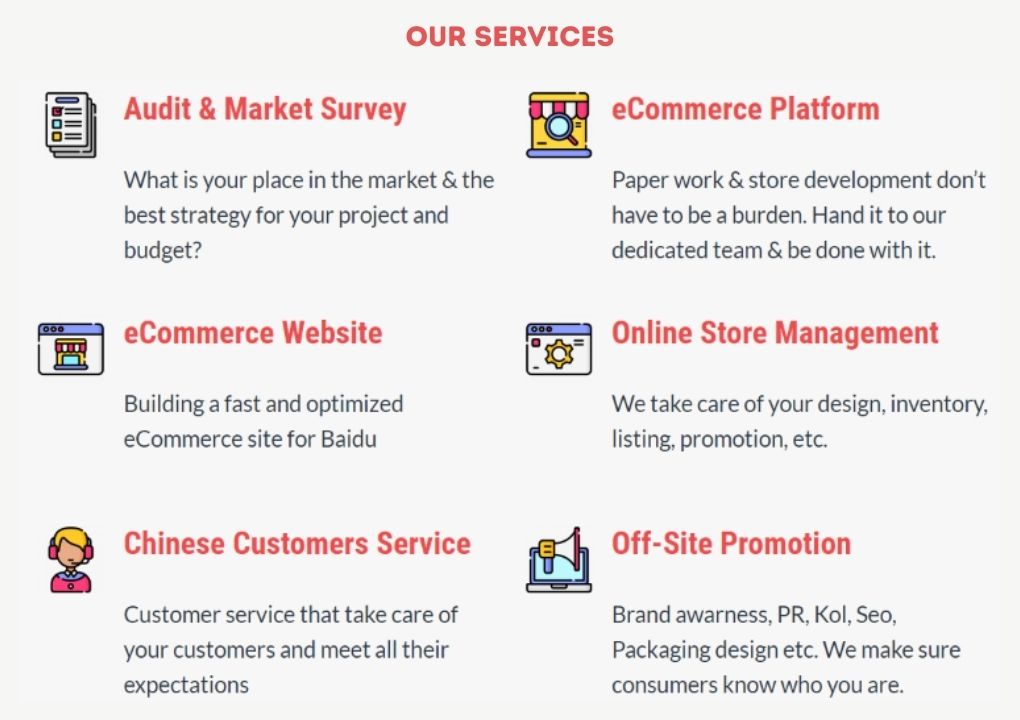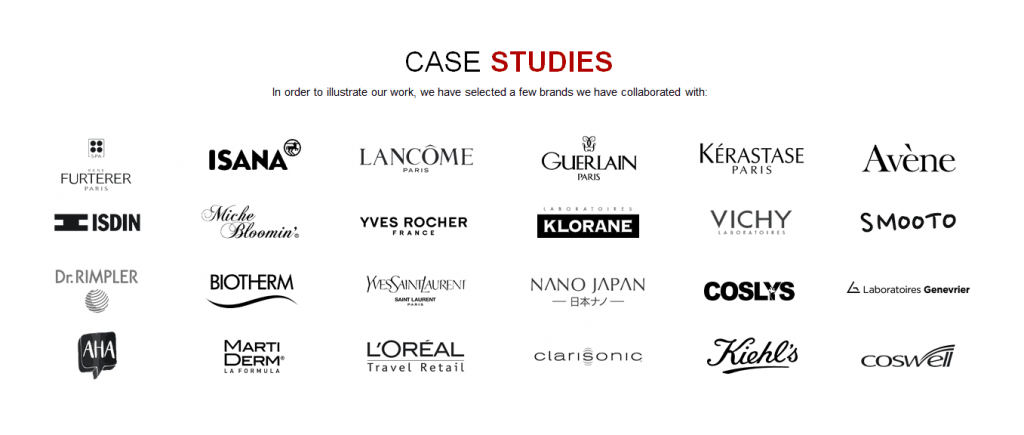China’s rapid development has led to a high demand for mental health services as stress becomes a common issue in their fast-paced society. Work, family, and societal expectations contribute to this pressure, making it crucial for individuals to find effective stress management solutions.
In this blog post, we’ll delve into the current state of China’s stress management industry by analyzing trends and challenges, sharing case studies of successful businesses, and exploring opportunities for foreign companies looking to enter this rapidly growing market. Join us as we delve into the fascinating world of stress management in China!
Need a cost effective TP (Tmall Partner) to sell in China?
We are an Official Tmall Partner e-commerce Agency. Our Services: E-Commerce, Search Engine Optimization, Advertising, Weibo, WeChat, WeChat Store & PR.
Overview of Stress Management Market In China
Stress is becoming a bigger problem in China because of changes happening in society. Scientists only started recognizing physiological and psychological stress in the mid-20th century.
The International Journal of Stress Management is important for dealing with stress in China. Chinese companies have different ways of dealing with stress compared to companies in other countries like Germany.
Market Analysis And Trends
The stress management market in China is growing fast because people need help with mental health and work stress. From emerging technologies to innovative products and services, this market offers numerous opportunities for businesses to thrive.
Growing Demand For Stress Management Solutions
The stress management market in China is growing due to the fast-paced urban lifestyle affecting people’s mental well-being. Chinese consumers are looking for solutions to manage their anxiety levels more effectively.
This demand is caused by factors such as higher workloads, long working hours, job insecurity, and financial pressures.
Businesses are looking for effective strategies to improve workplace productivity by ensuring employee well-being, such as mindfulness techniques or cognitive behavioral therapy.
As an example: in China, a popular wellness app called “Calm” provides stressed office workers with quick relief through guided meditation sessions designed for on-the-go use.

Technology In Stress Management (AI, Apps, VR, Etc.)
China is seeing impressive growth in the stress management market, with a focus on innovation and new products. The country’s indigenous innovation policies encourage domestic firms to create innovative technologies and solutions for stress management, such as artificial intelligence (AI), apps, and virtual reality (VR), which are making a significant impact.
AI is being used in healthcare for stress management, including chatbots for mental health support through conversation.
Chinese consumers are also turning to stress management apps for mindfulness exercises and self-care services.
Virtual reality is being used too by therapists in China to create immersive environments to help patients relax and feel connected to nature.
Overall, emerging technologies offer exciting opportunities for the future of stress management in China.
Corporate And Workplace Wellness Programs

In China, as the working population continues to work longer hours, face high pressure, and experience burnout, companies are starting to understand that taking care of their employees’ well-being is important for their productivity and growth.
Many companies are offering wellness programs to help their employees manage stress, such as yoga or counseling services. Over 550 companies in China now offer these programs to improve their work environment and culture.
The workplace stress management market in China alone is projected to reach $11,490.84 million by 2027.
However, entering this market comes with its challenges. Cultural differences and stigma surrounding mental health are still prevalent in Chinese society, which could impact how products or services are received.
There’s also a lack of standardization and regulation concerning stress management practices in China.
Despite these challenges, there are opportunities for foreign businesses looking to thrive in this market through partnerships with local entities or collaborations for mutual benefit.

Market Segmentation
The stress management market in China can be segmented by demographics, such as age, gender, and occupation, as well as by type of services offered including therapy, counseling, digital platforms, and workplace wellness programs.
By Demographics (age, Gender, Occupation, Etc.)

The stress management market in China is greatly influenced by demographic factors such as age, gender, and occupation, which can directly impact consumer behavior.
| Demographic Factor | Impact on Stress Management Market |
|---|---|
| Age | People of different ages have different types and levels of stress, so they prefer different ways to manage it. Younger people may prefer digital solutions, while older people may prefer counseling or therapy. |
| Gender | Women are not equally represented in ICT jobs, top management, and academic careers, which affects their purchasing behavior in the stress management market. This contributes to a gender digital divide in China’s stress management market. |
| Occupation | Stress at work makes people want stress management solutions. Some industries, like healthcare or finance, have more stress, so they need special stress management services. |
| Monthly Income Level | Income levels can influence consumer behavior in the stress management market, as affordability is an essential factor when it comes to choosing stress management products and services. Higher-income individuals may opt for more premium solutions, while lower-income individuals may lean towards cost-effective options. |
| Education Attainment | People with higher education tend to know more about mental health and stress management, so they’re more likely to buy products and services for it. They’re also more open to new technology and ideas in this area. |
By Type Of Services (therapy, Counseling, Digital Platforms, Wellness Programs, Etc.)

China’s stress management market offers various services to cater to the diverse needs of its consumers. These services can be broadly categorized into therapy, counseling, digital platforms, and wellness programs. The table below provides an overview of these services and their key features.
| Type of Service | Key Features |
|---|---|
| Therapy | Includes individual, group, and family therapy sessions. Integrates various techniques such as cognitive-behavioral, psychodynamic, and humanistic approaches to address specific stress-related issues. |
| Counseling | Focuses on more general stress management and coping strategies often provided by psychologists and licensed therapists. May be combined with therapy for comprehensive mental health support. |
| Digital Platforms | Includes apps, websites, and online forums for stress management, offers a wide range of resources such as guided meditation, stress tracking, and education materials. Example : MyTherapist a popular digital mental health service in China. |
| Wellness Programs | Focuses on holistic stress management and overall well-being. Includes activities like yoga, mindfulness, and relaxation techniques often conducted by wellness coaches and health professionals. |
However, there are still challenges facing this market such as cultural differences and stigma surrounding seeking help for mental health issues as well as limited awareness and education about available resources.

Challenges In The Market
Cultural Differences And Stigma
In China’s stress management market, it’s important to recognize cultural barriers that impact mental health care and contribute to stigma.
Chinese culture, like other Asian cultures, has a low tolerance for mental disorders and associates them with shame for the family.
This stigma can discourage people from seeking help for mental health issues, even if they experience symptoms like burnout or anxiety.
For instance, using traditional methods like meditation or acupuncture may be more effective for managing stress among Chinese consumers than Western-style therapies.
Limited Awareness And Education
In China’s stress management market, there is a lack of awareness and education. Although Chinese consumers are interested in self-care and education, they don’t have enough knowledge about stress management services.
The country’s mental health system was eliminated with the introduction of a market economy, which has made it harder to access mental health services, including stress management.

Case Studies Of Successful Businesses In China’s Stress Management Market
These case studies provide insights into successful stress management businesses in China, highlighting key strategies and takeaways that foreign businesses can adopt.
Overview Of Successful Businesses Or Initiatives
Here are a few examples of the landscape of successful businesses and initiatives in China’s stress management market:
- Calmerry: This online therapy platform is popular in China because it offers affordable and convenient virtual counseling sessions with licensed therapists.
- NeuronicWorks: This tech company creates wearable devices that monitor and regulate vital signs to reduce stress. Their products are used by corporations and individuals seeking innovative stress management solutions.
- WOOF Stress Management Training: This corporate wellness program provides training sessions to improve employee well-being and manage stress. It has gained popularity as more companies recognize the benefits of investing in employee mental health.
- Linghan Brainwave Biofeedback: This startup analyzes brainwaves using EEG technology and provides real-time feedback to users to manage stress levels through meditation techniques.
Future Outlook And Opportunities
Potential For Continued Growth
With the increasing demand for mental health and wellness solutions, there are numerous opportunities for businesses to expand their offerings and tap into this growing market.
According to surveys, Chinese employees have reported high levels of burnout, distress, and symptoms of depression and anxiety – highlighting the urgent need for effective stress management solutions.
Additionally, despite challenges presented by the pandemic and weakened demand for exports due to an economic downturn, there are still avenues for expansion through mergers and acquisitions or partnerships with local companies.
Expansion Of Online And Digital Services
More and more people in China are using digital services to manage stress, especially since the pandemic has made remote solutions more popular. Younger people are using meditation apps to help them manage stress.
This growth is good news for foreign businesses that want to enter the Chinese stress management market. They can make products that are specific to China or team up with local companies to reach more people.
Emergence Of New Technologies And Their Potential Impact
New technologies are changing the stress management market in China. Digital innovation is a big trend in China and has helped e-commerce and fintech grow a lot.
This trend will also change how people think about stress management and how they find solutions. The US-China trade war and COVID-19 can also affect businesses that make stress management products.
Manufacturers may have to find new ways to get the materials they need to make their products.
Strategies For Foreign Businesses To Enter And Thrive In China’s Stress Management Market
Understanding Chinese Culture And Business Etiquette
It’s important to understand their culture and how they communicate. In China, indirect communication is important, and it’s essential to be aware of cultural differences when talking to potential business partners or clients.
It’s also crucial to be polite and keep calm when dealing with Chinese business people. Traditional values, like Confucianism, are still important in China, and the concept of Guanxi, or relationship networks, can affect how businesses operate there.
Collaboration With Local Entities

Collaborating with local entities can be crucial for foreign businesses looking to enter and thrive in China’s stress management market. This approach allows businesses to gain insights into Chinese consumer behavior, which is critical in a non-uniform market like China.
When foreign businesses want to start a business in China to help people manage stress, it’s important to work with local partners who know the rules and laws.
For example, Johnson & Johnson worked with Tencent Medical to create a mental health platform called “Happy Sunshine” that uses computers to help people reduce stress.
Developing Localized Products And Services

One of the key strategies for foreign businesses looking to thrive in China’s stress management market is developing localized products and services. With China being a diverse and complex market, it’s important to cater to the unique needs and preferences of Chinese consumers.
For instance, Tenscare has tailored their stress relief products, like massage chairs, to suit Chinese consumers by incorporating traditional Chinese medicine techniques into their design.
Another example is Lululemon which created yoga pants with custom adjustments for various body types in China based on thorough research on average female body measurements in different regions.
Stress is a big problem in China because of expensive housing, tough competition for jobs and education, and pressure to succeed. People are looking for ways to manage their stress, like getting massages or doing yoga.
Technology is helping this market grow by offering new products and services, such as AI-powered apps or virtual reality, that help people relax their minds through meditation or other mindfulness techniques.
Let us help you succeed in China’s stress management market. Contact us!
In conclusion, the stress management industry in China is growing quickly and people want new and creative ways to deal with mental health issues. Even though there are cultural differences and some people are embarrassed to talk about it, many businesses are doing well in this market and offering different services to different groups of people.
There are lots of chances for foreign businesses to succeed in this field by learning about Chinese culture, following local laws, working with local companies, and making products and services that fit the local market.

We can help you with:

If you’re interested in learning more and you’d like to enter the cosmetics market in China, don’t hesitate to leave us a comment or contact us so that we can schedule a free consultation with one of our experts that will learn about your brand and assist you with the best options for your China entry. Let’s keep in touch!








